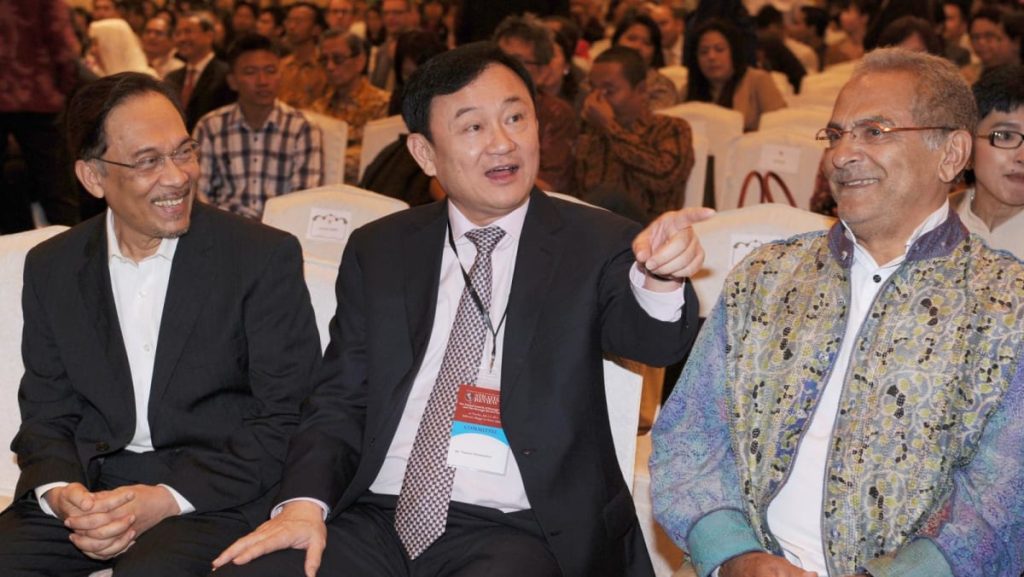Anwar Ibrahim’s Unconventional Approach to ASEAN Chairmanship: A Blend of Innovation and Controversy
Anwar Ibrahim, the Prime Minister of Malaysia, has taken an unprecedented step in his role as ASEAN chair for 2024 by appointing an informal advisory team. This move, while intended to bolster Malaysia’s leadership and address critical regional challenges, has sparked debate and raised questions about its efficacy and potential implications for the regional bloc. The team comprises high-profile figures, including former Thai Prime Minister Thaksin Shinawatra, a controversial choice given his past legal troubles. This appointment, combined with the unconventional nature of the advisory team itself, has generated mixed reactions within ASEAN and internationally.
The appointment of this informal advisory team marks a significant departure from established ASEAN norms. While the organization frequently utilizes eminent persons or high-level task forces for specific issues, the establishment of a personal advisory team for the chair is unprecedented. Experts like Sharon Seah of the ISEAS-Yusof Ishak Institute emphasize the novelty of this approach, suggesting it might reflect Anwar’s desire to leverage the experience of individuals familiar with ASEAN’s intricacies. This move could be interpreted as an attempt to navigate the complex regional landscape more effectively, drawing on the expertise of individuals outside the formal ASEAN structure. However, the lack of precedent makes it difficult to predict the precise impact of this advisory team on ASEAN’s functioning.
The appointment of Thaksin Shinawatra, a figure mired in controversy, has further fueled the debate surrounding Anwar’s strategy. Thaksin, ousted as Thai Prime Minister in a coup and subsequently convicted of corruption, remains a divisive figure. Critics, particularly within Malaysia’s opposition, have questioned Anwar’s motives for including Thaksin in the advisory team, suggesting potential personal gain. Malaysia’s Foreign Minister, Mohamad Hasan, defended the decision, highlighting Thaksin’s international connections and influence, particularly with the United States and China, as valuable assets for ASEAN. This defense underscores the strategic considerations behind the appointment, emphasizing the potential for enhanced engagement with global powers. However, the controversy surrounding Thaksin’s inclusion casts a shadow over the advisory team’s legitimacy and raises concerns about its effectiveness.
While Anwar’s intentions seem geared towards strengthening ASEAN’s ability to tackle pressing regional issues, skepticism remains about the likelihood of achieving significant breakthroughs. The South China Sea disputes and the ongoing crisis in Myanmar present formidable challenges for the regional bloc, characterized by complex geopolitical dynamics and deeply entrenched positions. Joshua Kurlantzick of the Council on Foreign Relations acknowledges Anwar’s ambition to bypass bureaucratic hurdles and foster consensus through the informal group. However, he also expresses doubt about the prospects of resolving these seemingly intractable issues, regardless of Anwar’s efforts.
The effectiveness of this informal advisory team hinges on several factors. First, the willingness of ASEAN member states to accept and act upon the advice offered is crucial. ASEAN’s consensus-based decision-making process means that no member state is obligated to follow the recommendations. Therefore, the advisory team’s influence depends on its ability to persuade member states of the value of its insights. Second, the advisory team’s composition, particularly the inclusion of controversial figures like Thaksin, could hinder its credibility and limit its impact. The controversy surrounding Thaksin’s appointment could distract from the team’s work and undermine its legitimacy within ASEAN. Third, the complex nature of the issues facing ASEAN, such as the South China Sea disputes and the Myanmar crisis, presents significant obstacles. These issues involve intricate geopolitical dynamics and deeply entrenched positions, making it difficult to achieve meaningful progress even with the best advice.
In conclusion, Anwar Ibrahim’s decision to establish an informal advisory team represents an unconventional and potentially innovative approach to ASEAN chairmanship. By leveraging the experience and expertise of individuals outside the formal ASEAN structure, Anwar aims to enhance Malaysia’s leadership and address critical regional challenges. However, the unprecedented nature of this move, coupled with the controversy surrounding the appointment of Thaksin Shinawatra, raises questions about its efficacy and potential implications for the regional bloc. The advisory team’s success will depend on its ability to navigate the complexities of ASEAN diplomacy, build consensus among member states, and overcome the formidable challenges facing the region. Only time will tell whether this unconventional approach will yield significant breakthroughs or merely remain a symbolic gesture.

